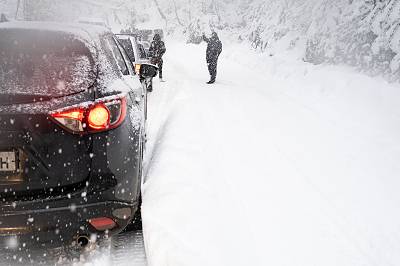Are you ready for a snowstorm? Or a thunderstorm that knocks out power for days? How about a flood that leaves you stranded at home without food or water? These are all situations that can and will happen in different parts of the world. And while many people believe that prepping is only for extreme scenarios such as a nuclear war or a zombie apocalypse, the truth is that being prepared for everyday emergencies is just as important.
The problem is that many people are sceptical about prepping. They may see it as an unnecessary expense or something that only conspiracy theorists do. But with the right approach, it is possible to turn sceptics into preppers. The key is to focus on situations that will happen, rather than hypothetical scenarios.
Start with the basics
If you want to convince someone to start prepping, you need to start with the basics. This means focusing on situations that are likely to happen in their area. For example, if they live in an area prone to hurricanes, then start by discussing the importance of having a plan in place for when a hurricane hits.
Explain the risks
Once you have identified the most likely scenarios, it's time to explain the risks. This doesn't mean scaring people with worst-case scenarios, but rather educating them on the potential risks and consequences of not being prepared. For example, if someone lives in an area prone to floods, explain how having a supply of food and water could mean the difference between life and death if they become stranded.
Start small
 The idea of prepping can be overwhelming for some people. To avoid overwhelming them, it's best to start small. Begin by encouraging them to put together a basic emergency kit. This could include things like a flashlight, first aid kit, and some non-perishable food items.
The idea of prepping can be overwhelming for some people. To avoid overwhelming them, it's best to start small. Begin by encouraging them to put together a basic emergency kit. This could include things like a flashlight, first aid kit, and some non-perishable food items.
Once they have this basic kit, they can gradually build on it. Encourage them to add items such as a radio, extra batteries, and a supply of water. Over time, they can build up their emergency kit to include things like a generator, solar panels, and even a water filtration system.
Lead by example
One of the most effective ways to convince someone to start prepping is to lead by example. If they see that you are taking prepping seriously and have put together a comprehensive emergency kit, they are more likely to follow your lead.
Invite them to join a prepping group
Prepping can be a lonely activity, but it doesn't have to be. There are many prepping groups and communities online and offline where like-minded people come together to share knowledge and resources. Encourage your sceptical friend or family member to join a prepping group in their area. This will give them an opportunity to learn from others, share their own experiences, and build a network of support.
Conclusion
Prepping is not just for conspiracy theorists or extreme survivalists. Being prepared for everyday emergencies is important for everyone. If you want to convince sceptics to start prepping, focus on situations that will happen in their area, explain the risks, start small, lead by example, and invite them to join a prepping group. Remember, prepping is not about being paranoid or living in fear; it's about being responsible and taking control of your own safety and security.
Hashtags:
#prepping #emergencypreparedness #sceptics #everydayemergencies #survival #emergencykit





